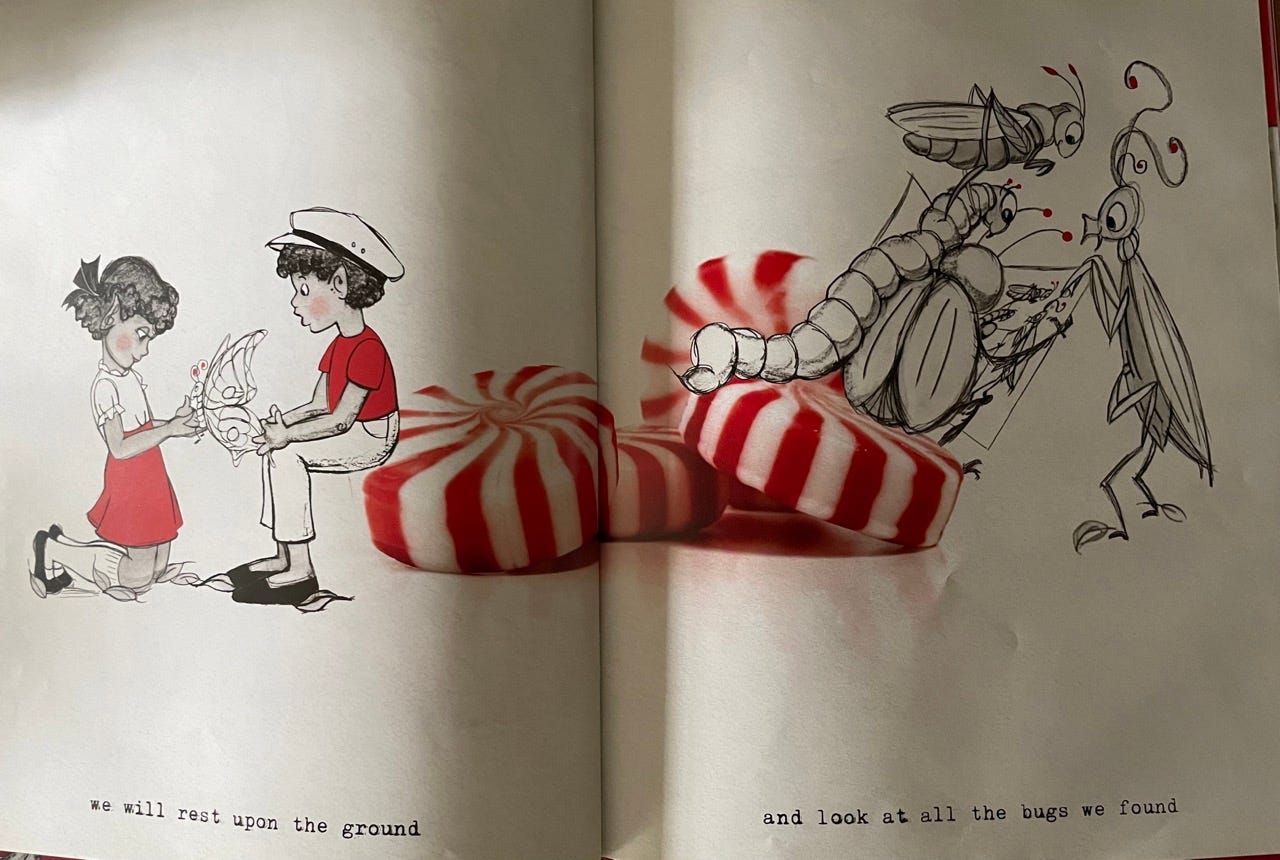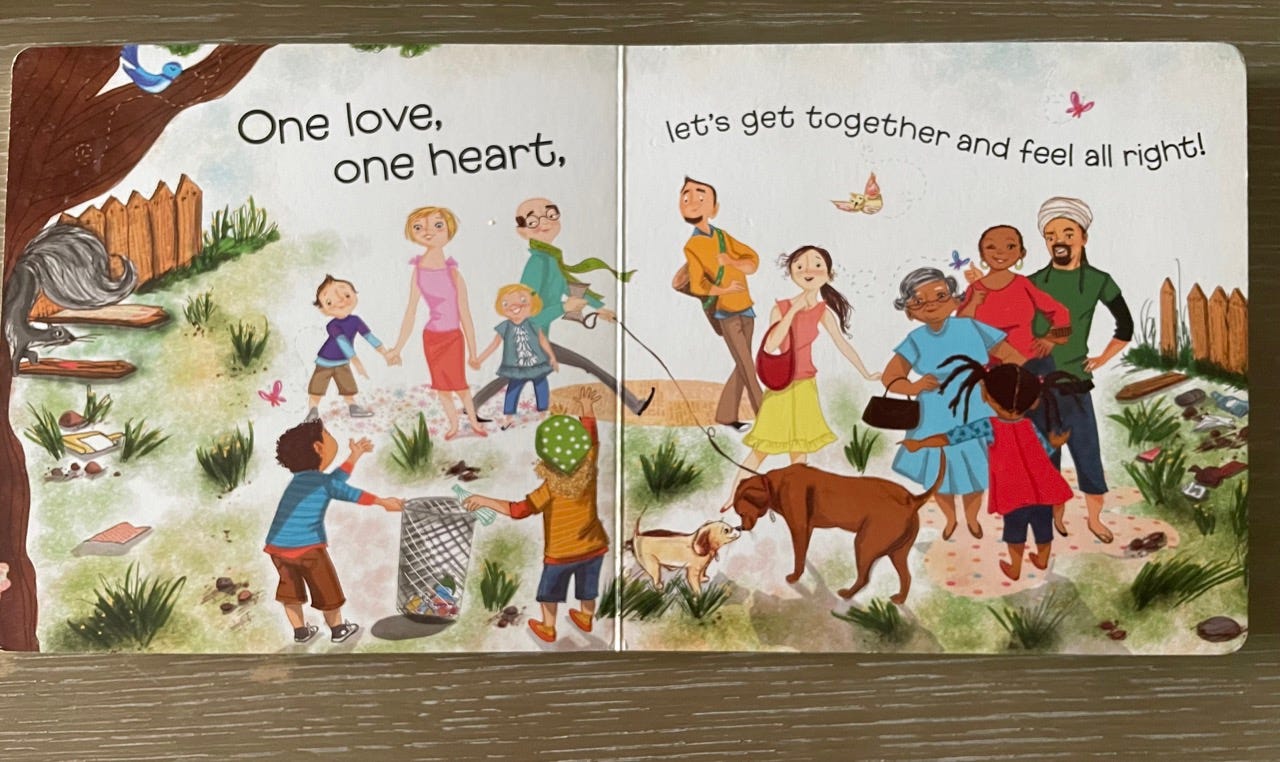For children’s content to be captivating it has to check a handful of boxes that other art forms can afford to ignore: repetition, thematic simplicity, assonance, etc. A piece of work can crossover from other domains to the realm of kid lit, but the maneuver is difficult.
Music as a medium, though, inherently shares some of these characteristics, so it’s no surprise that two books in our home library illustrate what’s possible when recording artists get creative about how to reorient lyrics for little ones: One Love, adapted from the Bob Marley song, by his daughter Cedella; and we’re going to be friends, written by Jack White of the White Stripes, based on his song of the same name.
Cedella Marley’s book is a joyful exploration of community and liberation. The lyrics of her father’s timeless song are augmented with other inspirational sentiments, voiced over lushly saturated images of neighbors working together to clean up a park. Vanessa Brantley-Newton’s illustrations propel the actual narrative, while the words themselves are untethered from the action, acting more as vibes. The effect is ethereal, imbuing the story with the sense that love is at the root of collective efficacy and social change, letting the motions of the characters speak for themselves. The gestalt creates a children’s book that feels like an inclusive block party with backing vocals.
Jack White’s book, on the other hand, illustrated by Elinor Blake, hews much closer to the actual lyrics of his hit 2002 song, which Wikipedia reminded me was used in the opening sequence of the film Napoleon Dynamite.
we’re going to be friends, like the song from which it is adapted, is an eye-dampening account of the innocence and intimacy of childhood friendship. Blake’s illustrations are innovative and revelatory: she uses a limited palette of black, white, gray, and red, juxtaposing comic book renditions of the titular “friends” with old-timey photos and rough-hewn line drawings of creatures. This cocktail evokes a phantasmagorical nostalgia that answers the eternal question, “What if Willy Wonka had sold the factory to live out his dream of fronting an alt-emo band?”

While these two books take divergent approaches to the pop-song-to-kid-lit pipeline, they share one important characteristic: slappage.
Let their collective success be a subtle encouragement to other musical artists with aspirations towards multi-generational popularity.
If this describes you, and you need a ghost writer, I’m just sitting here minding my business.
*cough* Kendrick *cough* Money Trees 4 Kids.
Just saying.




